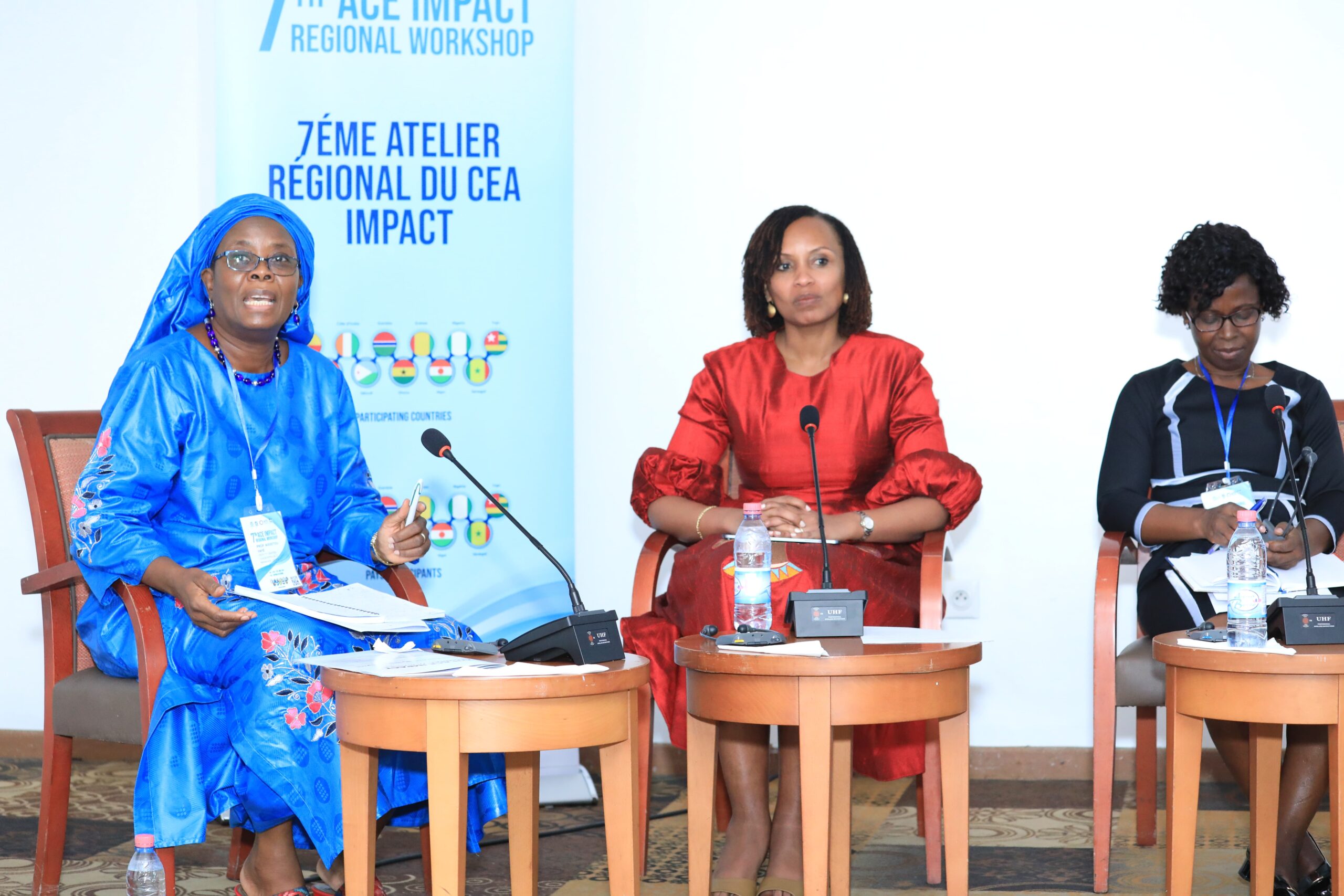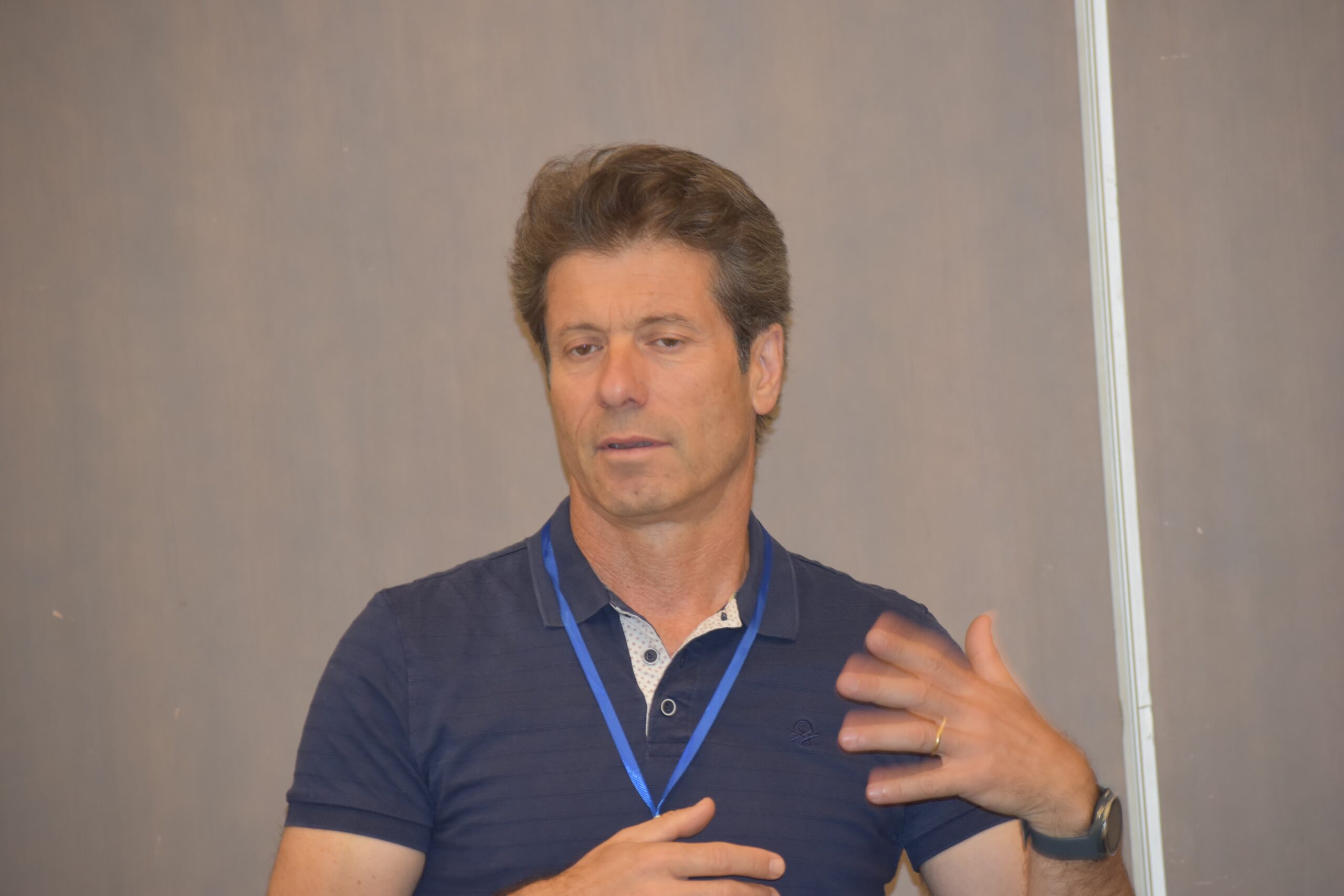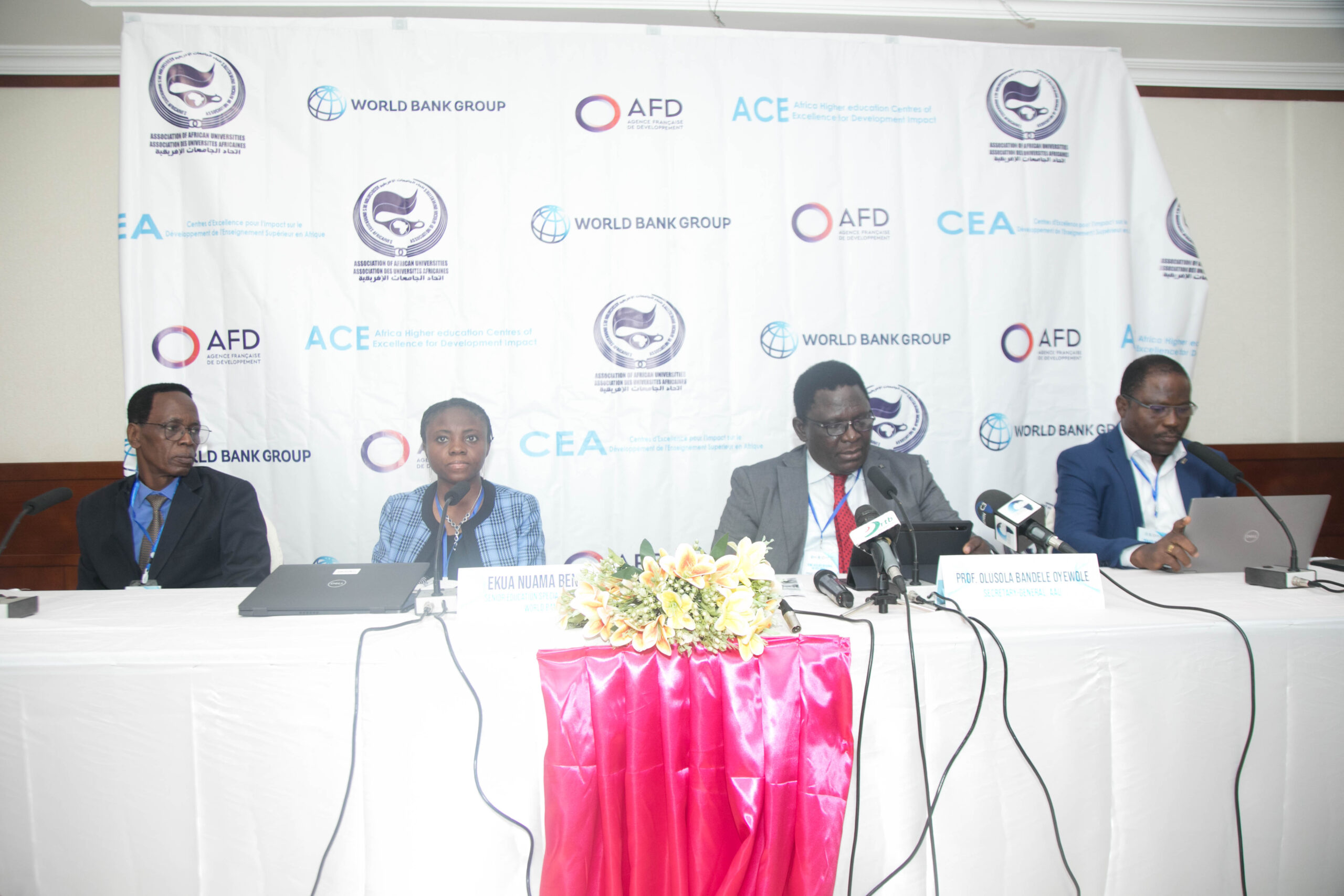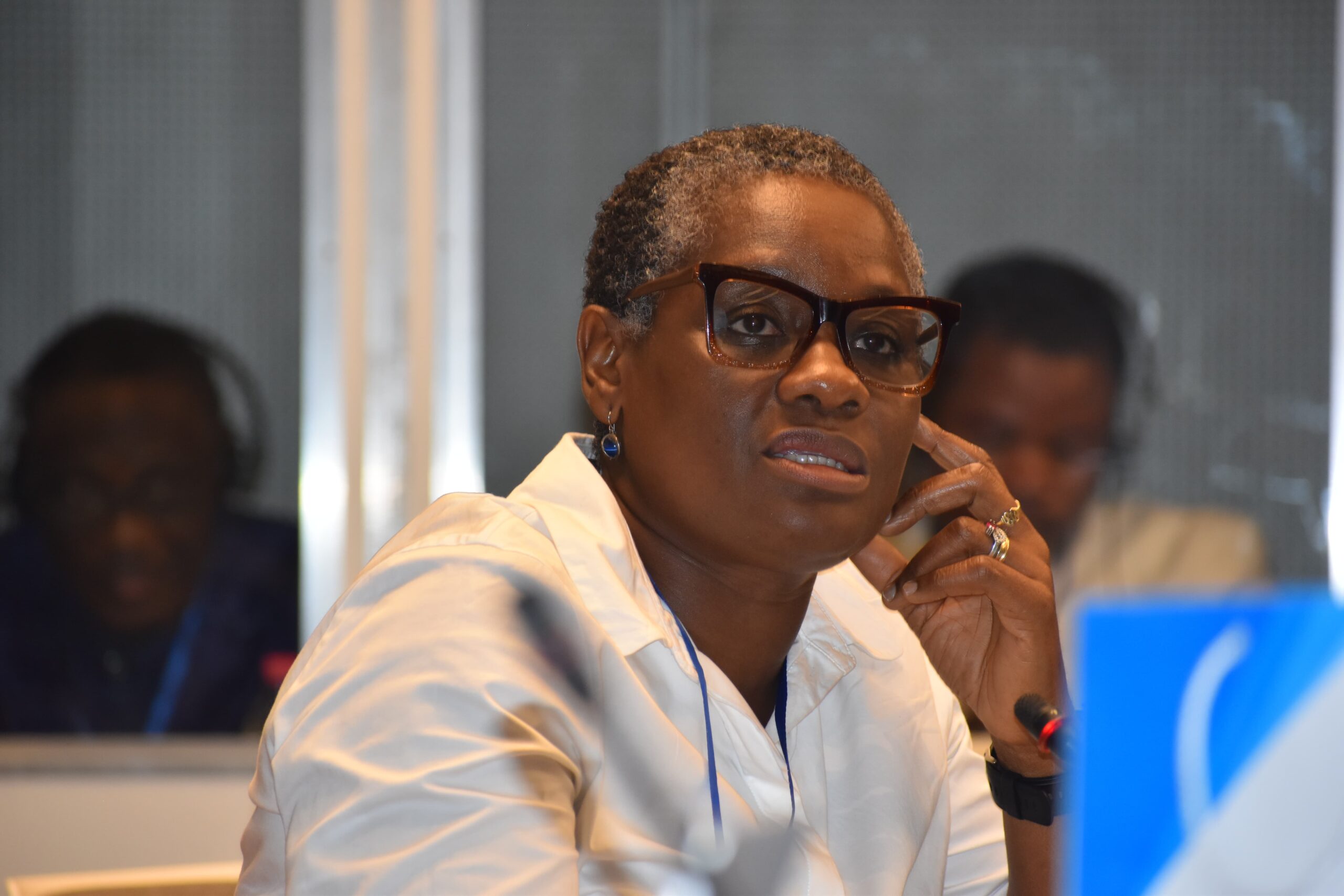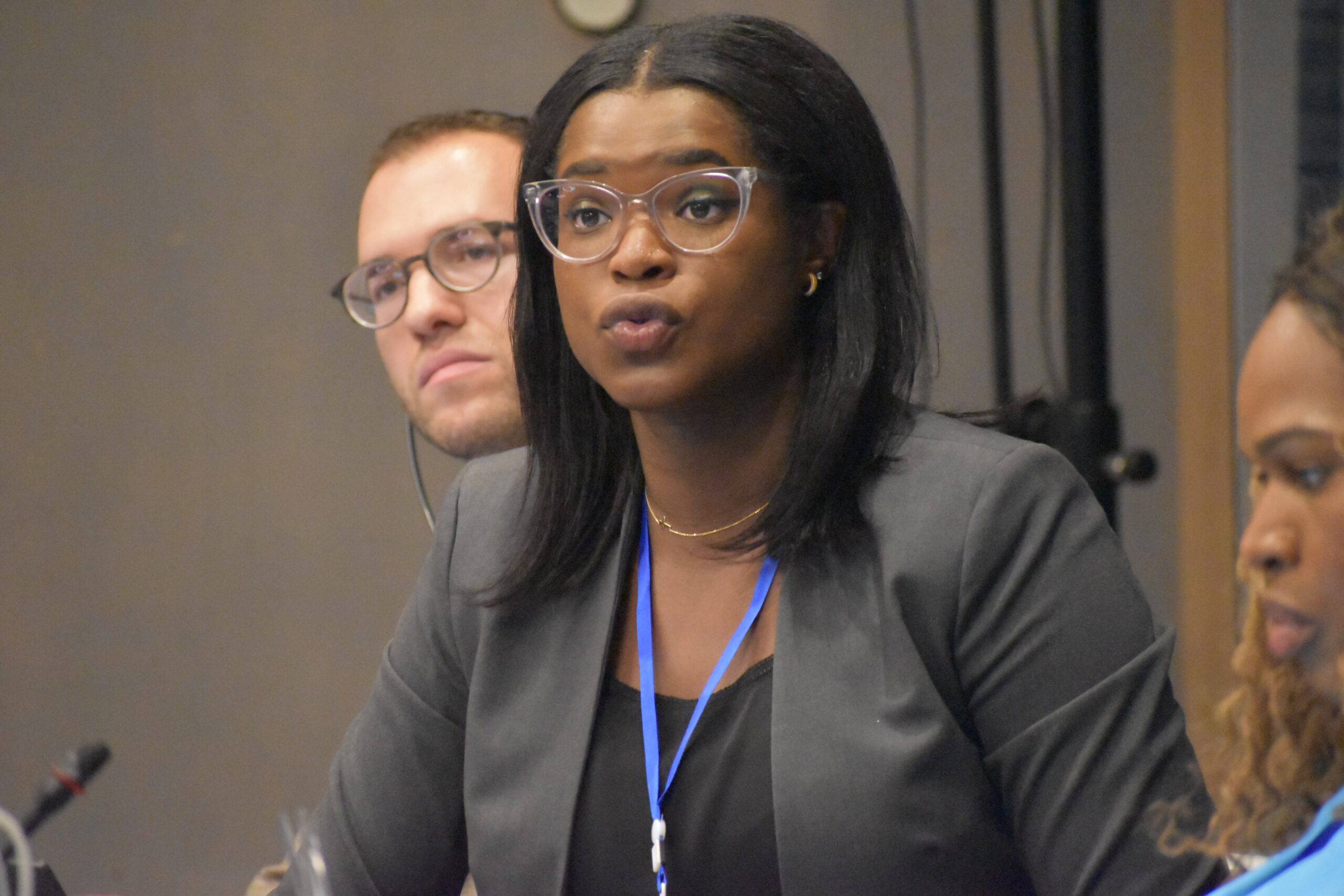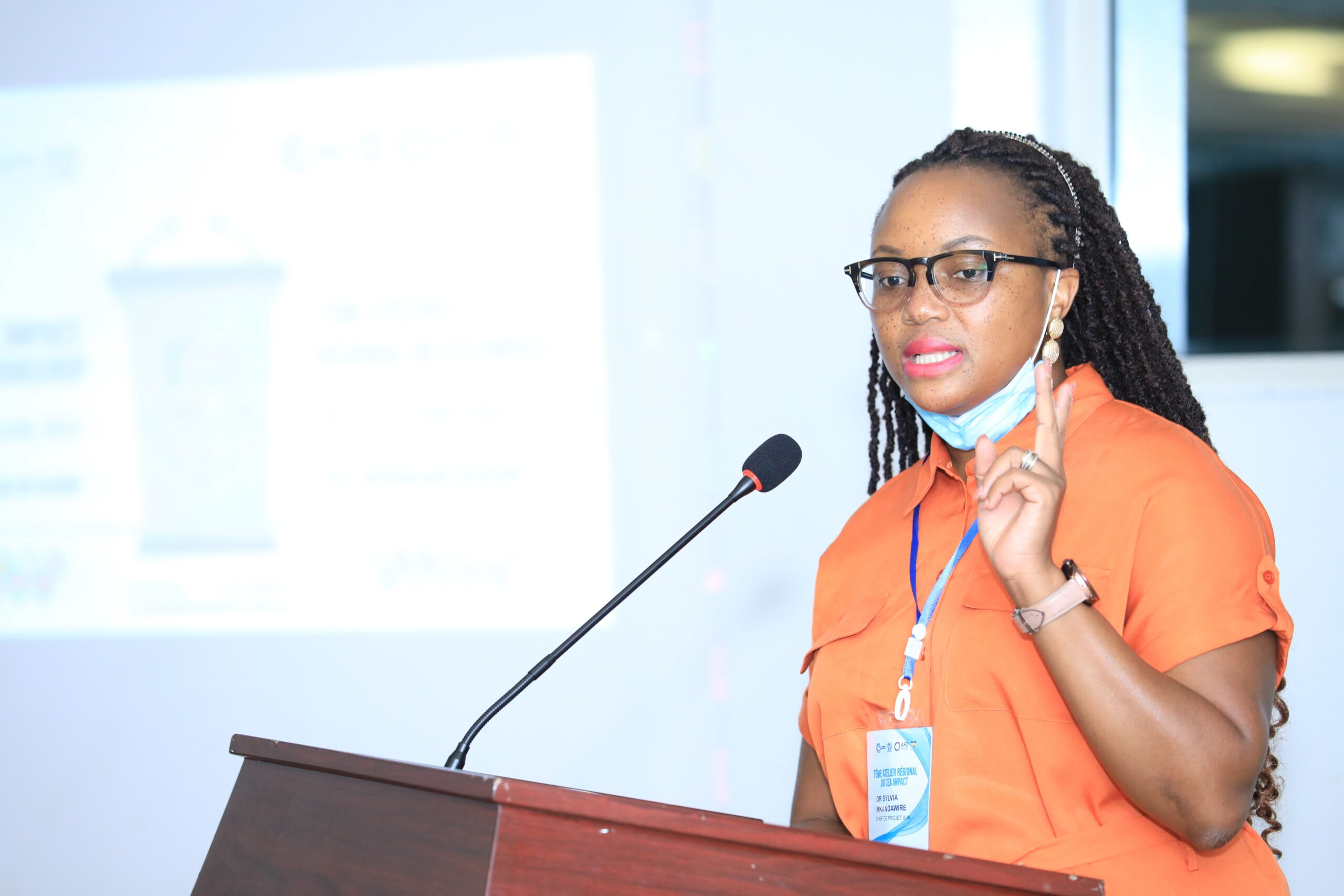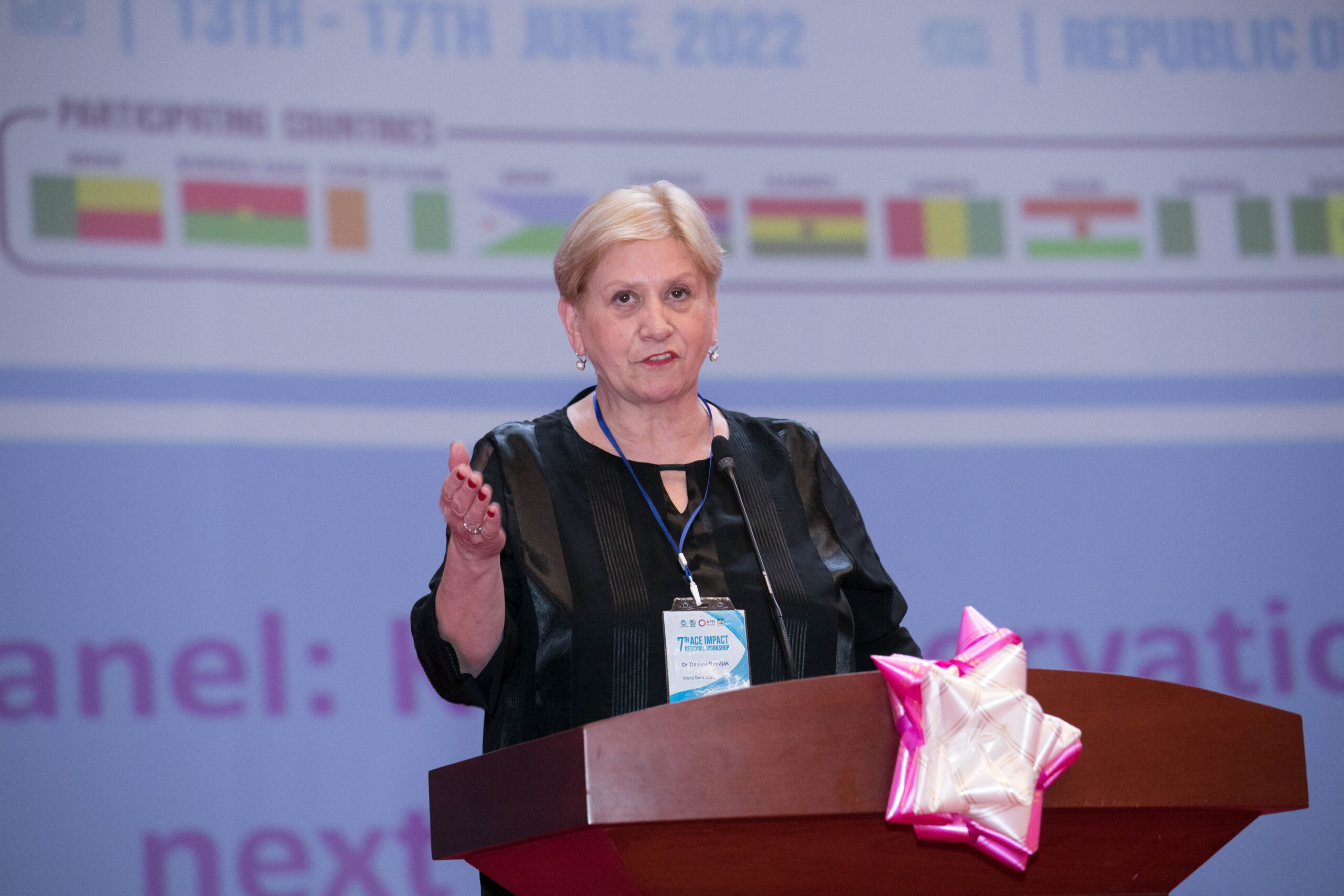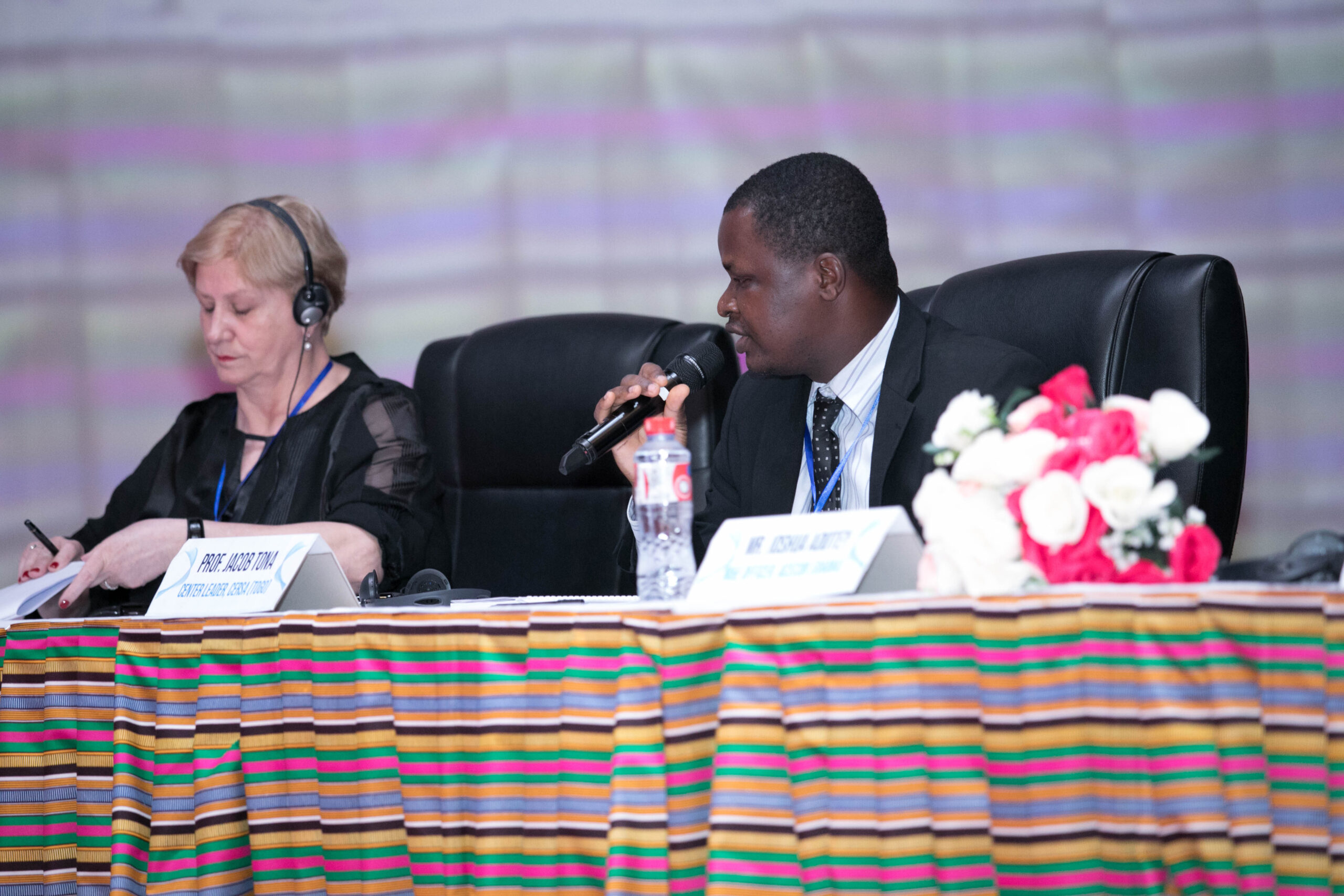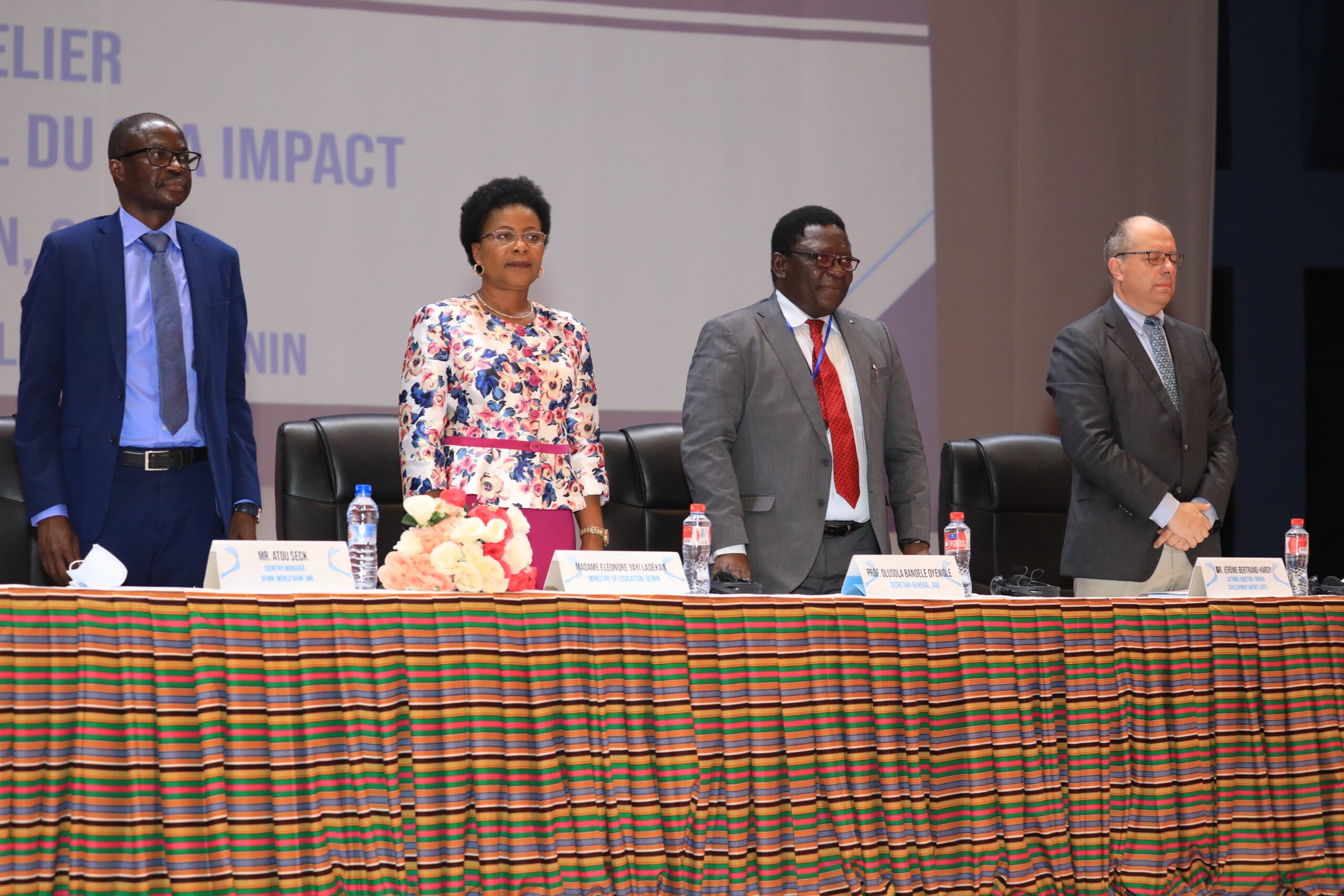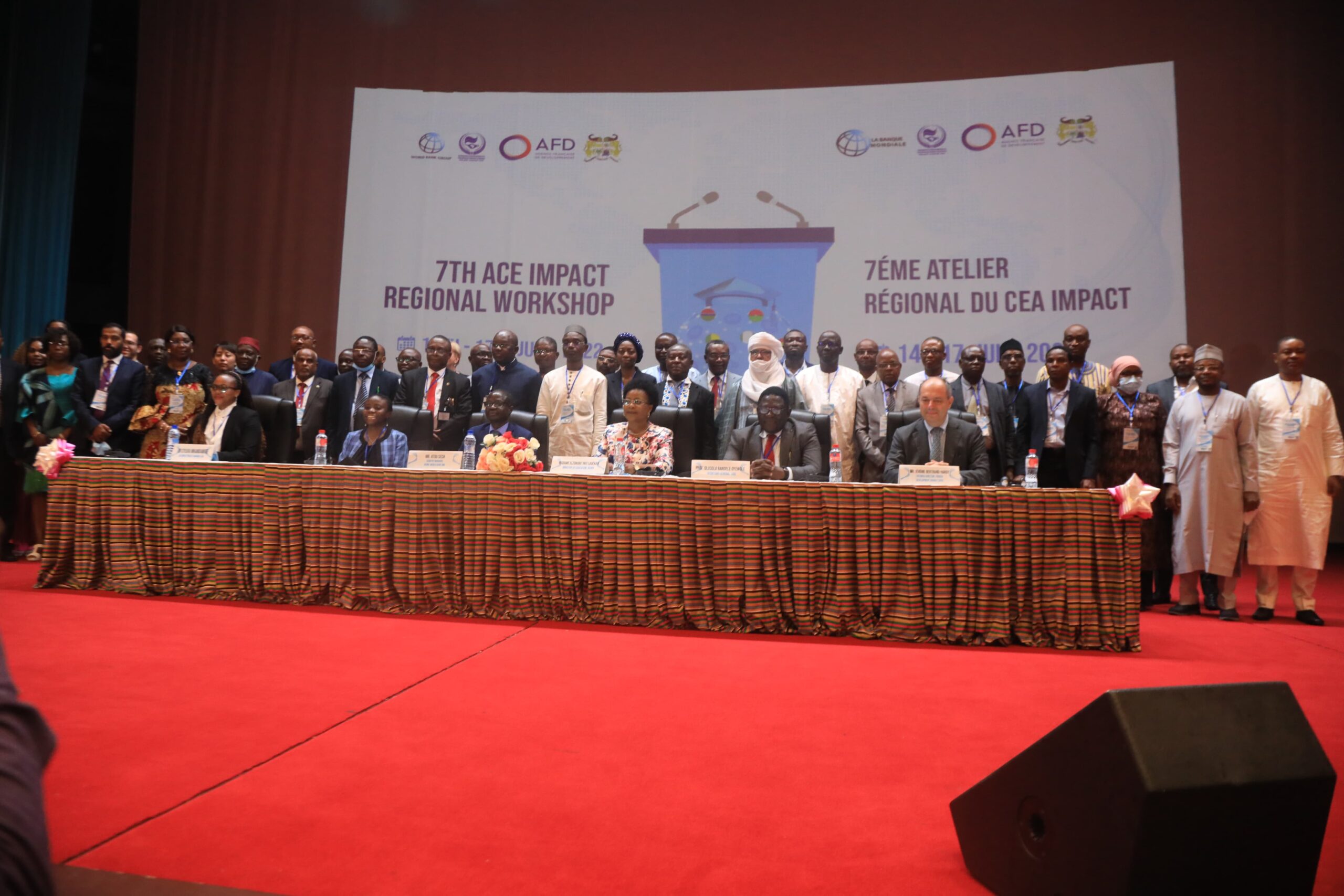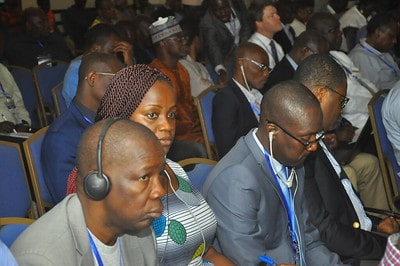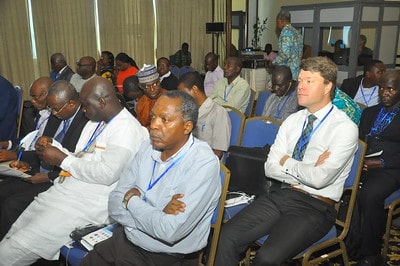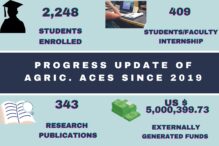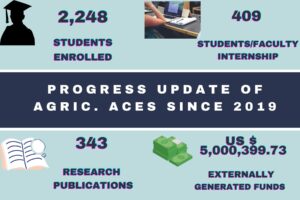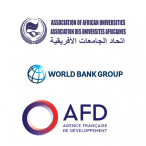Gender Policies in Action – African Higher Education Institutions Urged to Create an Enabling Environment for Women to Grow
Gender Policies in Action – African Higher Education Institutions Urged to Create an Enabling Environment for Women to Grow
Universities and other higher education institutions across the continent have been urged to take radical and positive actions to redress the long-standing gender inequalities in their various processes and ecosystem which continue to hamper women’s progress and effective participation in the sector. Building more resilient and gender inclusive systems, has been recognized as being key to the achievement of the United Nations’ Sustainable Development Goals, and the full participation of women and girls in the various thematic subject areas of Higher Education, including Science, Technology, Engineering and Mathematic (STEM).
Given the enormous benefits that gender inclusivity brings to higher education and indeed, society at large, the 7th ACE Impact Regional Workshop hosted in Cotonou Benin from 14 -17 June, 2022 prioritized discussions around the promotion and strengthening of policies and processes to particularly empower women and girls. The objective of the plenary session focusing on gender, was to provide an interactive platform for participants to reflect, discuss and be encouraged to create and strengthen policies to promote the attraction, retention and the professional and personal development of women in higher education, especially those in the STEM fields.
The session was ably chaired by Dr. Aissetou Yaye, a distinguished academic and Deputy Centre Leader for the Regional Center of Excellence on Pastoral Productions: Meat, Milk, Hides and Skins (CERPP), in Niger. It featured key presentations and an interactive and highly insightful panel discussion.
Women in STEM in Greater Number and Quality is Key to the Realisation of the Power of STEM – Ms. Lydie Hakizimana
Addressing participants at the workshop, Ms. Lydie Hakizimana, the Chief Executive Officer of the African Institute for Mathematical Sciences (AIMs) underscored the transformative power of empowered women and girls in the STEM and other fields to nations across the world.
She referenced the legendary all-female army of the Kingdom of Dahomey in Benin, which were referred to as Dahomey Amazons and known for their fearlessness, and equal role in conquering and resisting their oppressors. The Dahomey Amazons clearly demonstrate that women can play equal roles in all institutions – political, military, education, among others.
Ms. Hakizimana noted that societies where women are valued and get the opportunity they deserve tend to flourish and thus it was important for stakeholders to take pragmatic steps to boost the equal participation of women in STEM. She stated, that though women have made inroads in terms of their participation in STEM areas, we are still far from attaining parity and therefore urgent interventions needed to be implemented to increase the quantity of women in STEM.
Citing the African Institute for Mathematical Sciences (AIMs) model, Ms. Hakizimana spoke about the various initiatives being implemented by AIMs to increase the number of women in STEM to support Africa’s transformation agenda. The ‘Girls in Mathematical Science’ programme, launched in Ghana for bright, curious and creative senior high school students and aimed at unlocking their potentials, as well as the awarding of several fellowships to women in the area of climate change to spur the generation of science-based solutions to the challenges related to climate change, were referenced as brilliant examples.
Again, AIMs was said to be guided in all its processes by an established goal of attaining gender parity by the year 2027 and pioneering an innovative learning model for women through education and training. The CEO of the African Institute for Mathematics indicated that the institution was inching close to its target, as about 33% of its alumni, representing more that 25,000 alumni are women in the STEM fields. She reiterated the institution’s commitment to promoting gender diversity and to creating an inclusive environment for learning and research.
Ms. Hakizimana stressed the important roles of academic institutions in promoting women leadership and in fostering an enabling environment for women to effectively balance their biological roles of motherhood and their careers.
She motivated higher education institutions to identify and break the biases against women in their systems, empower women to reach their full potentials and to recognise the talents of women while ensuring gender inclusion at all levels and in all their processes.
She also called for the strengthening of entrepreneurship as it serves as a key solution to addressing unemployment and empowering women. Summing up her delivery, the CEO of AIMS said that ‘There is no HERO without HER’, implying that women make an unequivocal contribution to solving societies’ developmental challenges.
Various Strategies Employed by Centres of Excellence to Promote the Participation of Women in STEM
A high-level panel discussion was hosted as part of this session on gender, and it featured – Prof. Nahoua Soro of the African Centre of Excellence in Statistics and Quantitative Economics (ENSEA), Cote d’Ivoire; Prof. Barnabas A. Ikyo of the Centre for Food Technology and Research (CEFTER), Nigeria, Prof. Pitala of the Regional Center of Excellence in Avian Science (CERSA); and Ms. Lydie Hakizimana, the Chief Executive Officer of the African Institute for Mathematical Sciences (AIMs).
Contributing to the discussions, Prof. Nahoua Soro bemoaned the low number of women in science in the lower levels of education, and thus their equally low participation in STEM areas at the higher education level. As a corresponding intervention, the centre introduced a strategy where a Caravan moves round to introduce younger students, especially females to the activities and focus areas of the Centre. According to her, this Caravan initiative, is supported by the West African Economic and Monetary Union (UEMOA) and the World Bank. The initiative adopts the innovative strategy of having patrons who serve as role models to the girls – including the Minister of Planning and Development of Cote d’Ivoire and the Centre’s female alumni and students who are statisticians. aside adopting this strategy to encourage young girls to take up studies and careers in statistics, the centre also helps in training and preparing them to take the requisite admission tests and examinations, through provision of materials and computers among others. It was mentioned that slight improvements in the female participation and enrolment in the Statistical programmes have been recorded, however there remains a lot more to be done to reach the target of having 30% female participation in this area.
For his part, Prof. Ikyo of CEFTER stated that the centre was competitively selected to be part of the ACE Impact project under the able leadership of a female vice-chancellor, thus they highly recognise the power of women and promote women empowerment. He said that the centre has a good number of females in its team who are competent and merited their appointments, and these included the Deputy Centre Leader and the Monitoring and Evaluation Officer. He lauded the ACE Impact project for strategically encouraging the Centres to train more female students, by allotting more funds for the attraction and enrolment of females. Speaking to the strategies employed by CEFTER to promote women’s participation and advancement, he mentioned that the Centre introduced a measure requiring all programmes to have female senior academics. The benefits of this intervention, according to him were numerous and included presenting role models to the female students. The centre also introduced student support programmes designed to create the environment for females to thrive and these included the provision of decent accommodation, the introduction of favourable recruitment procedures and the establishment of clear merit-based appointments.
Representing CERSA, Prof. Pitala stated that the centre ensures that its call for applications for candidates encourages females to apply, in a bid to reach a 40% enrolment of females’ status. Additionally, the centre offers scholarships to female students and engages companies where students go for internships to create a conducive environment for their female students, especially those with young children.
Ms. Lydie Hakizimana of AIMs encouraged women and the centres to break biases at three levels which she identified as follows – structural bias (related to societal norms); organisational bias (related to discrimination at the workplace and HEIs) and finally personal bias (where one feels incapable of taking up higher responsibilities and appointments, that is limiting oneself and not taking up challenges)
Discussions By Participants and Key Points for Action
In an open discussion during the question-and-answer session, participants and the panelists identified critical steps to be adopted by the centres and generally African higher education institutions, some of which are captured as follows – firstly, stakeholders were encouraged to unclog the pipeline. By this, it was explained that the efforts to ensure gender parity and equal participation of women in STEM and other subject areas, needed to start from the primary school level. A connected proposal as part of unclogging the pipeline was to engage female teachers to serve as mentors and role models to younger girls. Secondly, the need to create opportunities to continuously develop the skills of women and to retain women in STEM in the workforce was highlighted. Stakeholders also called for the implementation and introduction of incentives, and even laws (if possible) to promote females’ improved participation in STEM fields. The engagement of men as allies to support women to move up the ladder was also underscored. The introduction of innovative techniques, such as the introduction of ‘Miss Mathematics in Senegal’, had proved to be effective, thus stakeholders were encouraged to adopt strategies which would appeal to young girls when engaging them. Offering of scholarships and setting aside special funds for unearthing and developing the talents of Women in STEM were proposed for adoption by institutions that are yet to implement such strategies.
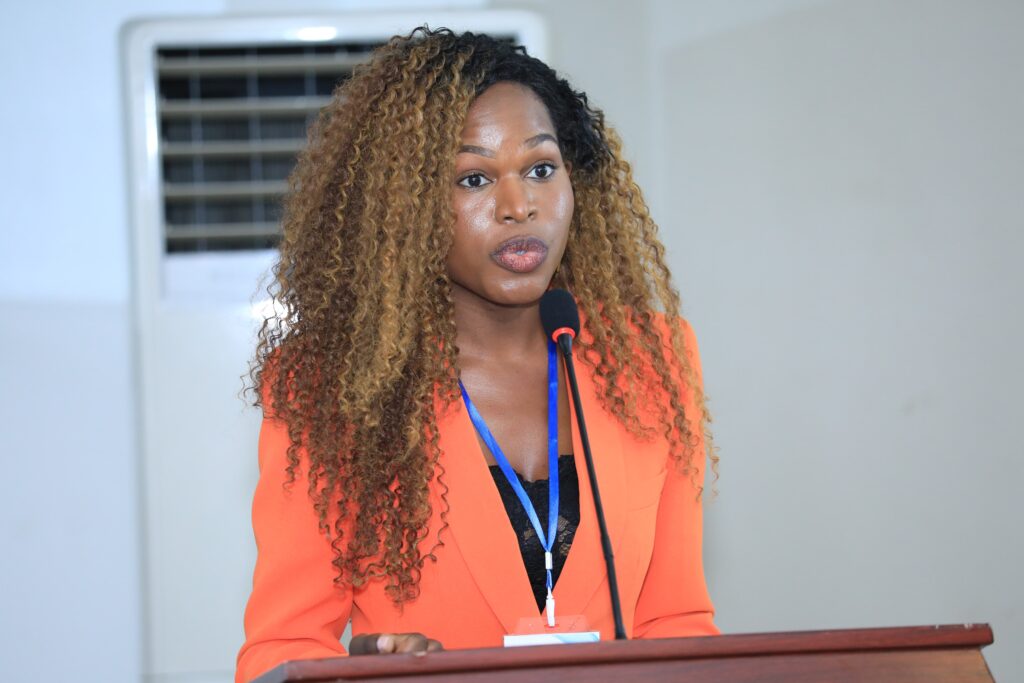
Planned Intervention by AAU and World Bank to Support Centres’ Gender Promotion Efforts
Ms. Djénéba Gory, a consultant and ACE Impact core team member at the World Bank took participants through some of the plans by the World Bank and the Association of African Universities in terms of supporting the centres to increase their female enrolments and retention. These included plans to implement activities such as ‘the women talk series’, the establishment of communities of practice, capacity building sessions in key topical themes, launch of a mentorship programme, organisation of webinars among several others. Ms. Gory called on Centres to support these initiatives, once they were rolled out, taking ownership and being agile in terms of leveraging the initiatives to suit their institutional needs.
Written by: Mrs. Felicia Nkrumah Kuagbedzi, Senior Communications Officer, AAU
